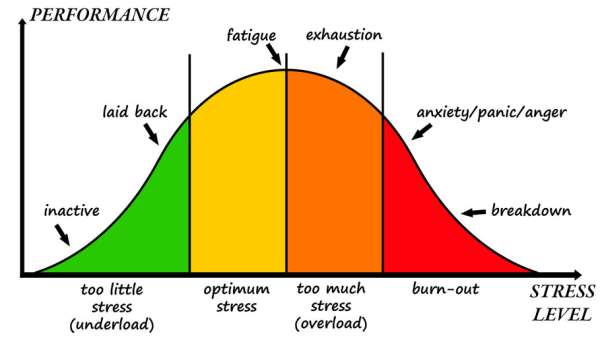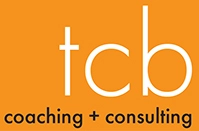
The word I’ve heard daily in this new year season is not “Resolution,” “Motivation” or “Goal.”
It is “Burnout.”
I hear it from clients, colleagues, inquiries for presentations, in the media, and from friends and family members. It can be hard to muster enthusiasm for things we used to enjoy. Grocery shopping or visiting friends can be complicated and fraught. Even if we have stable housing and work and other privilege, we are all feeling it right now.
This week a friend asked, “What did we used to talk about before Covid?” The Before Times seem so close and yet so far away. We are all continually adjusting to changing and charged conditions related to the pandemic, climate change and break downs in our greater sense of community and connectedness. As our work and lives carry on, so do these conditions and the disruptions they cause. We are not yet able to glimpse resolution. We don’t yet have distance or hindsight that allow us to see, understand, grieve, heal and move forward. This is a hard place to be for people accustomed to having answers at the click of a mouse.
There is and continues to be so much to take in, witness and hold space for right now for ourselves, our community and the world.
Without an adequate period of time for depth and quality of rest (which for me, always seems like more than I should reasonably need) our minds and bodies try to carry on with fewer and fewer resources. Our productivity and accuracy at work suffers. Our relationships suffer. We suffer in big and small ways, over the short and long term.
- Not making time entries or completing bills (which compounds into additional stress from decreased billable hours and cash flow).
- Missing deadlines and making mistakes that seem avoidable or “silly” in retrospect.
- Failing to keep clients informed of progress or routine matters.
- Letting go of time management and productivity practices that previously worked.
- Doing whatever urgent task arises without regard for their calendar or existing work load.
- Giving themselves over to an incessant work schedule sacrificing sleep, diet, exercise and social connection for weeks and months at a time.
- Making a hasty job change or career transition only to find the “grass isn’t greener” and the time between jobs wasn’t enough of a break.
- Neglecting and ultimately damaging important professional and personal relationships.
- Neglecting their physical and/or mental health until disease, injury or crisis starts calling all the shots in their work and life.
If you suspect burnout developing in yourself or a colleague:Do not delay, get help now.
Coaching is not a substitute for counseling or mental health support. But, coaching can help clients make changes that create the time and space to address burnout, reframe priorities and adopt better practices and habits going forward.

The 3 A’s: Assess, Acknowledge and Accept
- Assess. Take a little time to check in with yourself.
- Make a 30 minute appointment with yourself early or mid-day when you can take time away from distraction and interruption. Put it on the calendar and treat it like an important client or medical appointment.
- Go for a walk or close the office door. Put devices away or turn them off.
- Notice your breath and settle into it. Let the breath soften and deepen.
- Inquire – Am I hungry or thirsty? Do I need a bathroom break? Address these needs and then return to your practice.
- Inquire – Am I tired? Do I need rest? If so, envision what would feel restful. What do you need most right now?
- Acknowledge. If you are feeling tired or depleted, acknowledge it. Do this simply just by resting a hand over your heart and taking a deep breath. Inhale peace. Exhale rest. Acknowledging our humanity and worthiness of rest at any time is affirming and life-giving, but it is especially important when we are feeling exhausted and depleted.
- Address. The time for addressing the need for rest is right now. Consider making time each day for rest by arriving later or leaving work early this week, or taking a few days off entirely. Take steps to reschedule appointments, delay or defer obligations and get extensions. Do this and rest until you feel better. You will know when it is enough. Trust yourself.
Let Your Priorities Guide You
- Get the Big Picture. First, get the big picture on your work and life. What is most important to you? What do you value? What would you regret most later if you don’t pay attention to it now? Make a list of 3-5 life priorities and put them in order with the most important one at the top. Are you on that list? If not, why not? You won’t be much use to your loved ones, colleagues and clients if you don’t take care of yourself. Consider the advice we receive on an airplane to, “Secure your own face mask first before assisting others.”
- Envision the Work and Life You Want. Second, consider the work and life you want and compare that vision to your current reality. If these are far apart, you might need some help to bring them closer together. Consider working with a therapist and/or coach to support you.
- Protect Time for Rest and Life. Third, segregate time for work and time for life. You are not in danger of living too much. But you might be working too much. Set regular hours when you will work and for when you will leave the office and go home. Jealously guard your time for rest, self-care and social connection. Other options for getting work done must be considered like delegation, referrals and declining or deferring obligations.
- Do a few important tasks each day. Finally, make a short list of 3-5 prioritized tasks to do each day. Create this list with reference to your calendar and task list. Keep the list short and focused on what is most important to be accomplished that day. Cross items off as they are completed to enhance motivation to try again tomorrow.
When addressing burnout, it is helpful to spend less time working and more time resting.
Burnout is insidious and often ongoing until a crisis requires a change. Addressing burnout before, during or after a crisis may mean taking action when you feel depleted and unmotivated. That is why it is so important to have support and help from a caring friend or colleague, medical and mental health professionals and/or a coach.
This being human thing is hard even under the best of circumstances. But we don’t have to do it alone. Let us help each other with understanding, support and by honoring our need for rest and recovery.
Resources
Anyone experiencing a mental health concerns including burnout can contact the National Alliance for Mental Health HelpLine: 1-800-950-NAMI (6264) or info@nami.org Check out the NAMI website for more resources: https://nami.org
Lawyers experiencing burnout can reach out to the Oregon Attorney Assistance Program for entirely confidential support and resources: 503-226-1057 or https://oaap.org
Members of the Washington State Bar Association can access the WSBA Member Wellness Program: https://www.wsba.org/for-legal-professionals/member-support/wellness
To learn more about how to support well-being in yourself, others and in the broader legal community, consider attending the 2022 Institute for Well-being In Law Conference, January 19-21 (on line). The conference has two days of programming dedicated to individual lawyer well-being and additional programs specific to law schools and legal employers. Check out all the details and register at: https://lawyerwellbeing.net/conference-2022/
